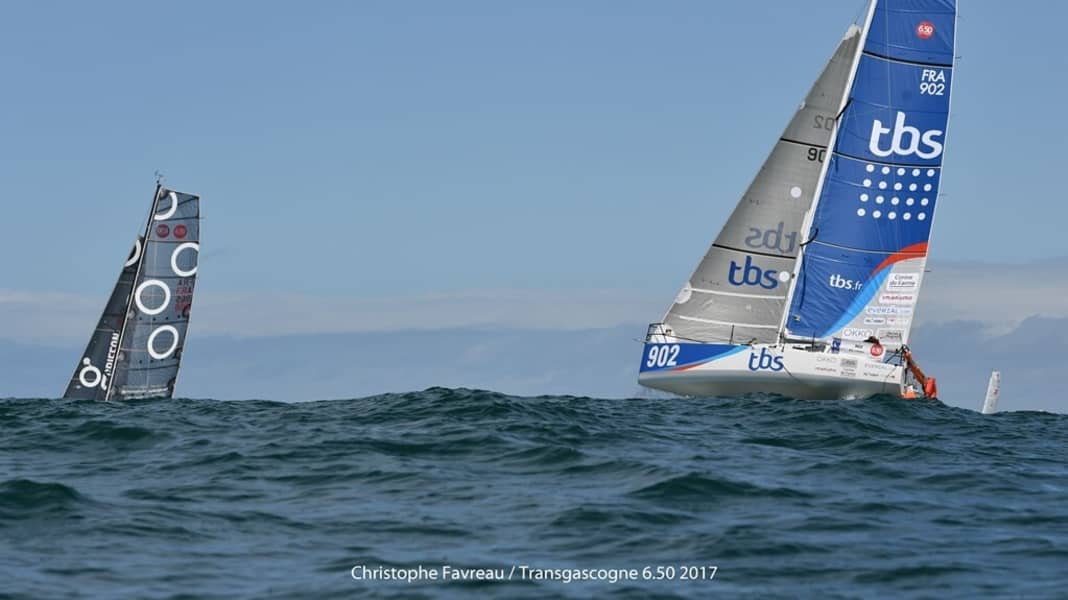
It's the last chance to test how little sleep you can get by on, how quickly the sails are changed, when and how your own boat runs at top speed: The Transgascogne 2017 mini regatta began a few days ago - it is the last race of the season before the ocean-going dwarfs, just 6.5 metres long, and their single-handed skippers cross the starting line for the Atlantic crossing on 1 October.
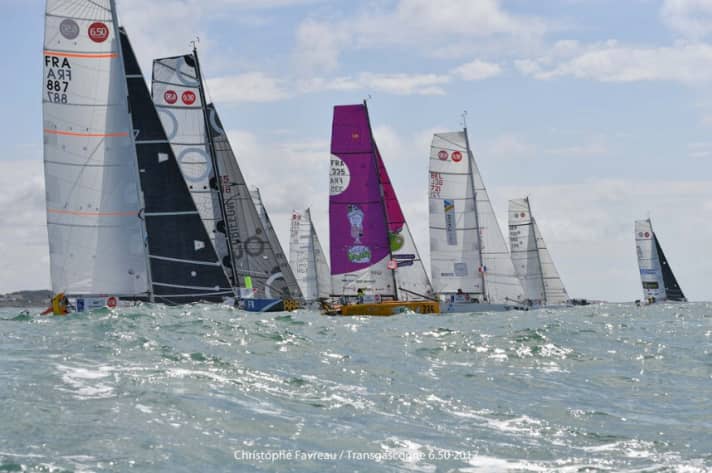
Over 450 nautical miles, from Les Sables d'Olonne on the French Atlantic coast to Avilés in Spain and back again, the sailors have the best opportunity to adapt to the "special rhythm of an ocean race", according to the organiser's website: The race will cross the dreaded Bay of Biscay (known as the "Golf de Gascogne" in French) twice, sailed in two stages with a stopover in Avilés, where the first Minis in the series classification and the prototype class arrived yesterday at midday after a good two days at sea.
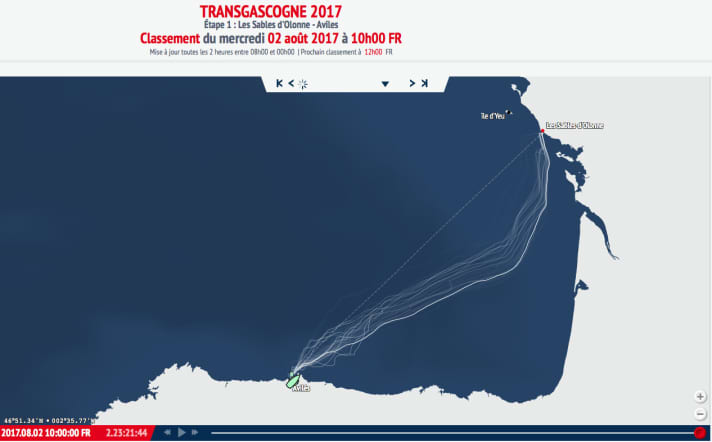
At the forefront was none other than the radiant mini-newcomer Clarisse Crémer. In January, the 27-year-old won the Seamaster award from boot Düsseldorf and Delius Klasing Verlag for her entertaining and lucrative Media campaign received. In the mini regattas so far this season, she has shown with top placings that she can not only market sailing, but also has the potential for podium finishes. Most recently, she won the Mini Fastnet with her training partner and rival Erwann le Draoulec on his Pogo 3 (see also YACHT 16/2017). "I'm really happy, especially because I was in second place behind Erwann for a long time and was only able to overtake him shortly before the finish. The conditions were a real disaster at the end, my boat even sailed two 360-degree circles under spinnaker because the wind was constantly shifting," said the Parisian-born sailor after the first leg.
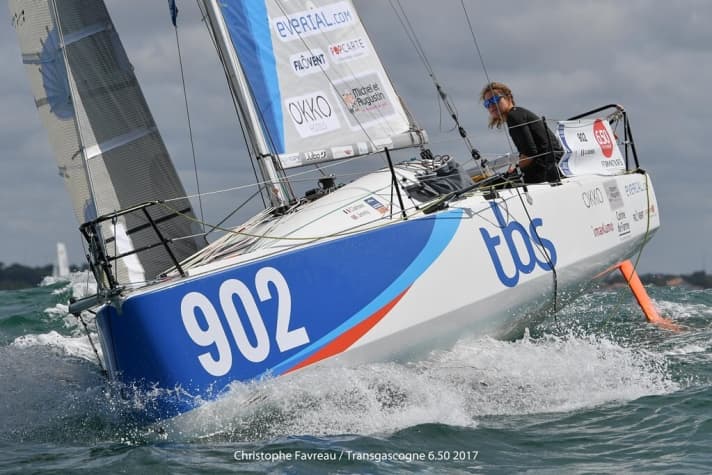
The lull mentioned by Crémer above the 33 solo starters in the series boat field had a greater impact on the only German participant in this classification: Oliver Tessloff was not really happy about his respectable eighth place. "I was in third, fourth or fifth place the whole time, but ten miles before the finish I was caught in a wind hole and some people were able to pass me. It was an absolute nightmare," the Hamburg-based sailor told YACHT online.
In the double-handed classification of the series boats, two German Minis were among the ten boats sailing, one of which won the first leg: Chris Lükermann and his French co-skipper only needed two days and just under five hours for the ride along the edge of the Atlantic, making him the fastest in his classification. In 2015, he had crossed the Atlantic alone in the Mini-Transat. YACHT reported.
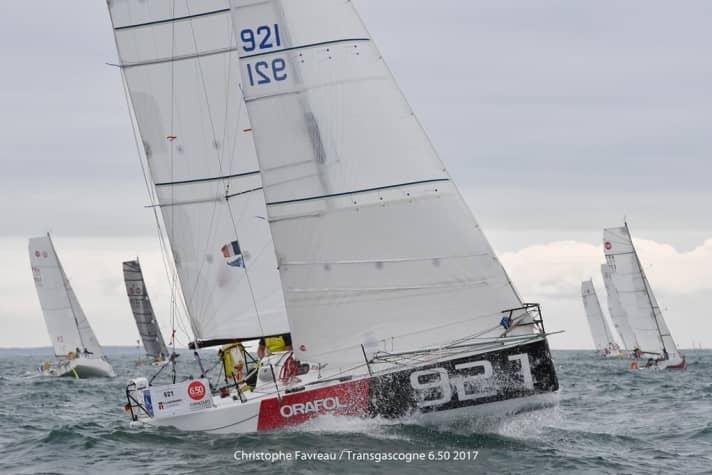
With Lükermann's former boat, a Pogo 2 built in 2008, a German skipper wants to be there in October: Lina Rixgens is using the Transgascogne in two-handed mode to test her new sails. "And on top of that, there's one or two other things, so it's great that you can sail this race as a pair," says the 22-year-old, who now lives in France. Rixgens will also switch to solo mode on 1 October at the latest: Like Clarisse Crémer, Oliver Tessloff and 80 other "miniists", she has completed the required qualifying miles and regattas for the mini-transat in October.
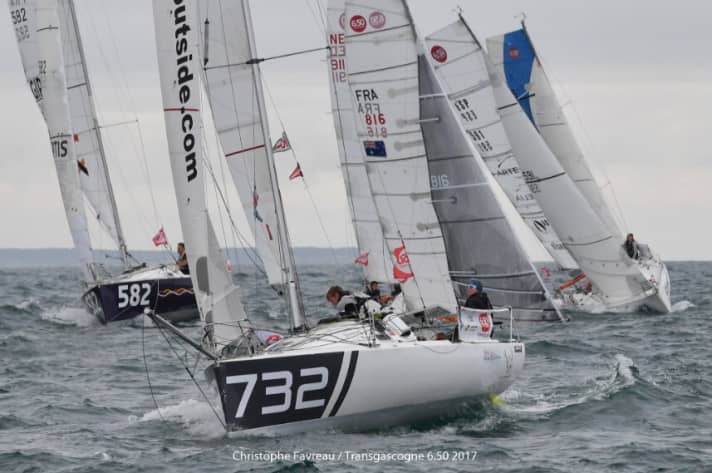
The return stage of the Transgascogne starts on Saturday 5 August. The tracker and the results are available here.
